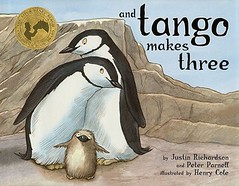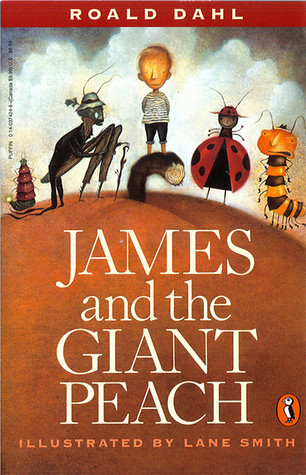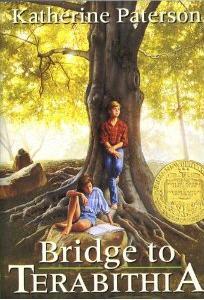You Can’t Read That! is a periodic post featuring banned book reviews and news roundups.

YCRT! News
A Chicago area school board is reconsidering its ban of The Perks of Being a Wallflower.
Worth another mention: The Political Agenda of the Morality Police. My only objection? The author doesn’t connect the dots tying widespread attempts to have books restricted or banned to organized right-wing Christianist activism. Here are some items I’ve covered in previous YCRT! columns:
- Censorship on the rise: US schools have banned more than 20 books this year (2011)
- Those challenging books find strength in numbers
- Tea Party moves to ban books
- Powerpoint presentation being shown to groups of conservative and religious parents around the country
- PABBIS: Parents Against Bad Books in Schools
The more I read news articles about challenges to school text and library books, educational videos, plays put on by drama departments, articles in student newspapers, or the very subjects of courses listed in elementary, secondary, and college curricula, the more I sense right-wing Christianist activism at work. Far from being isolated incidents of parents being shocked at something a child brings home from school, I believe these reports indicate an organized movement to force a specific Christian religious message on children.
I see, for example, Christianist activism at work here:
If you read the linked article, you’ll learn that the video frames its anti-suicide message (totally appropriate for 12- and 13-year-old students) by creating a fictional homosexual society in which heterosexuals are denounced and bullied and referred to as “breeders,” and that this is what the parent is actually objecting to. There’s a strong pro-bullying movement among the Christianist set, especially when it comes to putting gay, atheist, or otherwise non-conforming schoolkids in their places.
The Christianist impulse to bully the rest of us into conformity is at work in a minister’s experience at a ball park: “One hot Sunday afternoon last season, I did not rise for ‘God Bless America.’ In a beer-soaked tone of voice that wasn’t pleasant, a gentleman several rows behind me told me to stand up. I reminded him that I don’t have to.”
Christianist activism is, more pertinently to the subject of my YCRT! posts, clearly at work in organized and persistent efforts to ban certain books written for children and young adults, a few of which I review below.
YCRT! Banned Book Reviews
It shouldn’t surprise anyone that books written for children and teens are the most frequent targets of Christianist activism. Here are four short reviews of frequently banned and challenged books. I wrote these in 2009, shortly after starting my banned books project. In each case I include my own original comments, followed by additional information on parental and religious group challenges taken from R. Wolf Baldassarro’s excellent Banned Books Awareness blog.
 And Tango Makes Three
And Tango Makes Three
Justin Richardson & Peter Parnell
![]()
My original review:
Looks innocent, doesn’t it? What if I told you Tango has two daddies? Ah, now you understand. This book isn’t just gay, it’s homosexual agenda gay! If your children read this they will TURN OUT GAY! Oh, and whatever you do, don’t let the kiddies see the first illustration, which clearly shows a mixed-race lesbian couple entering the zoo. Case. Closed. Seriously, it’s difficult to see this book as anything other than a pitch for tolerance of alternate lifestyles (not that that’s a bad thing, and it’s not like children’s literature hasn’t always been used to advance moral messages, but in this case the effort seems unusually heavy-handed).
From the Banned Book Awareness blog:
And Tango Makes Three is always at or near the top of the American Library Association’s annual banned books list. Challenges to Tango almost always come from religious groups and parents, who object strongly to the notion that homosexuality occurs naturally in the animal kingdom because of what that implies about human homosexuality.
 A Wrinkle in Time
A Wrinkle in Time
Madeleine L’Engle
![]()
My original review:
As an adult, I often read books aimed at teenagers, and I looked forward to reading this one because it’s cataloged as science fiction and I’m a sci-fi geek. But A Wrinkle in Time, despite a head-nod to interstellar travel through wormholes, a well-worn sci-fi convention, is really magic, fantasy, and witchcraft, wrapped around a Christian, Chronicles of Narnia-like message.
So why is it that L’Engle’s book is so often challenged? Because, I suppose, a certain kind of Christian hates being reminded that Christ preached love over vengeance and hate. And then there’s the passage where L’Engle gives Ghandi equal billing with Jesus. Hell, I could have told her that was a non-starter!
From the Banned Book Awareness blog:
L’Engle was in fact a Christian, the official writer-in-residence at New York City’s Cathedral of St. John the Divine. Christian opponents of her book, however, point to the fact that she was an Episcopalian, and thus a liberal, and thus a commie. Other objections? Placing Ghandi on a plane with Jesus, which I have already mentioned. New age religion and magic. Strong female characters. Since its publication, A Wrinkle in Time has consistently placed in the ALA’s annual top 100 list of banned & challenged books.
 James and the Giant Peach
James and the Giant Peach
Roald Dahl
![]()
My original review:
I can already hear you asking why anyone would want to keep kids from reading such a cute-looking book. My god, have you read the thing? A malingering boy, shirking his chores, meets a rain-coated pervert and accepts from him a bag of body parts harvested from endangered species, then drops the illicit gift and creates hideous genetic mutations. He then runs away with giant insects, murdering his legal guardians in the process. And not one mention of Christ, never mind any hint of remorse, punishment, and eternal damnation. I weep for the souls of children exposed to this evil work of Satan.
From the Banned Book Awareness blog:
James and the Giant Peach has been challenged for being too scary for its targeted age group. Specific objections include the inclusion of mysticism, sexual inferences, profanity, racism, references to tobacco and alcohol, as well as perceived promotion of disobedience, drugs, and communism. In a Wisconsin challenge, the repeated use of the word “ass.” A perennial on the ALA’s annual lists of banned & challenged books.
 Bridge to Terabithia
Bridge to Terabithia
Katherine Paterson
![]()
My original review:
I didn’t have to wonder long why this charming story frightens God-fearing parents: a strong female character who’s out of the kitchen, hints of sexuality, dirty fucking hippies, possible Jews. Stir in a flip attitude toward organized religion, insufficient fealty to Christ, elements of witchcraft, and you’ve got subversive literature, right here in River City! It’s also a terribly good story about friendship, growing up, and death, a story that will make a positive and lasting impression on young (and old) readers.
From the Banned Book Awareness blog:
Number 8 on the ALA’s list of the 100 most banned & challenged books for 1990-2000, number 28 for 2001-2009. Primary objections? Death as an essential part of the plot, use of the word “lord” outside of prayer, offensive language, and claims that the book promotes secular humanism, new age religions, the occult, and satanism. Some critics also proclaim that Leslie is not a good role model simply because she doesn’t attend church. A Connecticut parents’ petition to a school board urged it to “eliminate the study of materials containing information about witchcraft, magic, evil spells, or related material now and forever. We believe this material is satanic, a danger to our children, is being studied excessively, and has no place in our schools.”
